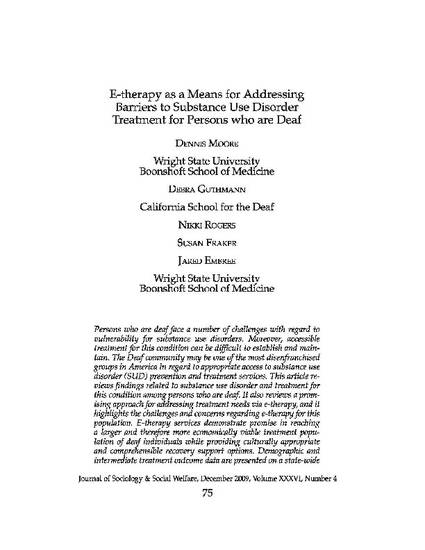
Persons who are deaf face a number of challenges with regard to vulnerability for substance use disorders. Moreover, accessible treatment for this condition can be difficult to establish and maintain. The Deaf community may be one of the most disenfranchised groups in America in regard to appropriate access to substance use disorder (SUD) prevention and treatment services. This article reviews
findings related to substance use disorder and treatment for this condition among persons who are deaf. It also reviews a promising approach for addressing treatment needs via e-therapy, and it highlights the challenges and concerns regarding e-therapy for this population. E-therapy services demonstrate promise in reaching a larger and therefore more economically viable treatment population
of deaf individuals while providing culturally appropriate and comprehensible recovery support options. Demographic and intermediate treatment outcome data are presented on a state-wide program established to serve persons who are deaf in the mid-west.
Available at: http://works.bepress.com/nikki_rogers/6/
